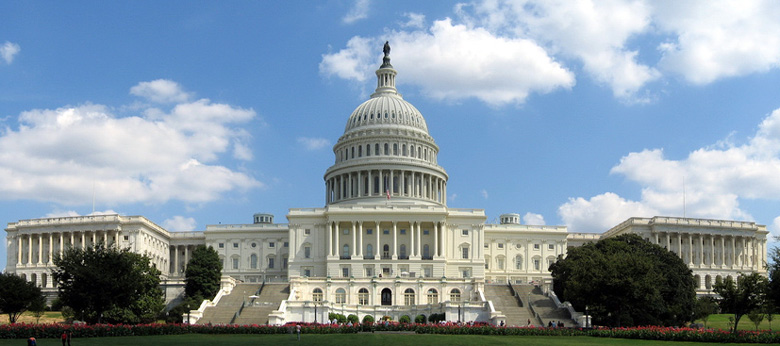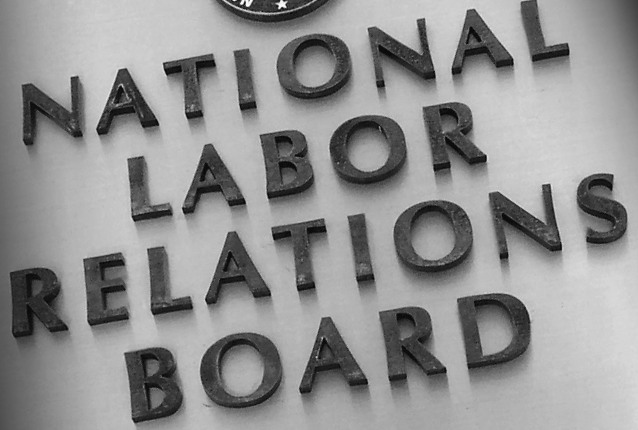
On Monday, with their Southern Strategy in peril after their devastating defeat at Volkswagen in Chattanooga, United Auto Workers bosses abruptly abandoned their attempt at creating a media circus by withdrawing their absurd election objections with the National Labor Relations Board.
A short time after the UAW’s failure to appear at the NLRB (leaving some pro-UAW supporters rather dumbfounded), the NLRB certified the election that took place in mid-February where a majority of VW employees rejected UAW representation.
This, however, is not the end of the UAW in Chattanooga, or in the South for that matter. With BMW, Mercedes Benz, Volkswagen, as well as other “transnationals” still operating union-free, the stakes are too high for the UAW merely throw in the towel.
Indeed, after spending millions of its members’ dues money—up to $8,000 per vote at VW—a UAW flyer handed out at Volkswagen’s plant gates later in the day stated that “The UAW is here to stay.”
This is why the UAW’s conduct at Volkswagen is deserving of much greater scrutiny–especially as it relates to those “transnationals” who are determined to have co-determination in their U.S. plants.
In its flyer, the UAW referred to an “ongoing” Congressional investigation (which was only sought last week by union-bought Democrats George Miller [CA] and John Tierney [MA]) to help continue its claims that “outsiders” (rather than its own actions) doomed its election at Volkswagen.
Notwithstanding the possibility that the union may try to cut another backroom deal, as some suspect, and unionize Volkswagen’s employees through “card check,” as the UAW continues to target other foreign-owned auto plants, if Congress is to look into anything regarding the UAW’s Chattanooga campaign, Congress should begin by looking into the actual “neutrality agreement” that the UAW cajoled Volkswagen into agreeing to.
Signed behind Volkswagen employees’ backs on January 27th, the 22-page neutrality agreement (in full below) spelled out the procedures in which Volkswagen would remain “neutral” and allow the UAW access to its employees in order to unionize them.
Although there is currently a federal lawsuit filed over the union’s having obtained “things of value” from Volkswagen in exchange for neutrality, one aspect of the agreement deserves much greater scrutiny is the UAW’s quid pro quo in the agreement—the union’s seemingly unlawful agreement to violate the National Labor Relations Act by delegating its duties as “exclusive bargaining representative” to a Works Council that Volkswagen (and its employees) want.
Under Section 9(a) of the National Labor Relations Act, once a union is certified as the bargaining agent of employees, it is unlawful for a union to delegate any of its responsibilities to another entity.
Yet, at Volkswagen, the UAW agreed to do just that. While the UAW’s delegation of discussed throughout the agreement, Exhibit B specifically details some of the “delegation” of the UAW’s duties
The roles of the Works Council would include:
making decisions by majority vote of its elected members for the good of the employees as well as the Employer on all issues for which the Works Council would have responsibility; representing the interests of employees in the day to day running of the plant. The Works Council members would deal with complaints and suggestions and cases where there is a need of individual support or advice; serving as the contact for management for all intra-company issues concerning the topics and tasks assigned to the Works Council under the CBA and the documents establishing the Works Council and its operative documents; communicating to the employees concerning the Works Council’s activities and conveying information given by the Employer to it; initiating, discussing and/or negotiating ideas and other intra-company needs with management;… [Emphasis added.]
By the above (as well as other areas in the UAW’s neutrality agreement), it seems clear that, if it had won, the UAW agreed to turn over its duties as the employees’ representatives to a yet-to-be-formed Works Council.
However, under Section 9(a) of the National Labor Relations Act, that would seem to be patently unlawful.
According to the National Labor Relations Board’s own publication:
Once an employee representative has been designated by a majority of the employees in an appropriate unit, the Act makes that representative the exclusive bargaining agent for all employees in the unit….Once a collective-bargaining representative has been designated or selected by its employees, it is illegal for an employer to bargain with individual employees, with a group of employees, or with another employee representative.
If Congress is to investigate anything about the UAW in Chattanooga, it ought to investigate how the UAW and Volkswagen appear to have planned to flagrantly violate the National Labor Relations Act.
[Disclaimer: After having written about the UAW’s scheme to infiltrate the South since 2010, I was privileged to have been asked to help Volkswagen employees with their ongoing campaign to inform their co-workers about the UAW. During a three-week period from late January through February 14th, I had the pleasure of working with the employees in Chattanooga (for which my company was paid) in their quest to expose the truth about the UAW. Since leaving Chattanooga on February 14th, all posts related to the UAW at Volkswagen (and elsewhere) are purely for informational purposes and any assistance given to VW employees is without compensation.]
________________________
“Truth isn’t mean. It’s truth.”
Andrew Breitbart (1969-2012)





